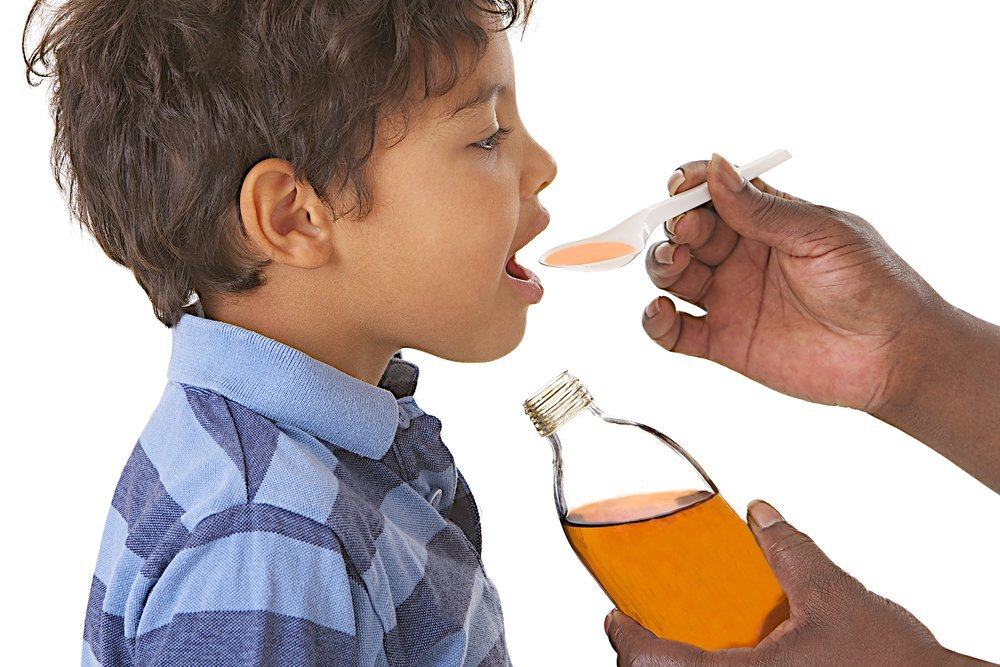Contents:
- Medical Video: Should Children Take Vitamins | What Age Do Babies Need Vitamins | Best Childrens Baby Vitamins
- Vitamins for children can be obtained from food
- Who needs vitamin supplements?
- 6 types of vitamins most needed by children
- Which must be considered before giving children a supplement
- A safe way to provide supplements for children
Medical Video: Should Children Take Vitamins | What Age Do Babies Need Vitamins | Best Childrens Baby Vitamins
If you notice, there are various advertisements that sell supplements or multivitamins for children. From its cute shapes to varied colors and tastes, this makes the tablet and vitamin syrup preferred by children. However, is it true that Children need additional vitamin supplements?
Vitamins for children can be obtained from food
Actually children do not need additional supplements and multivitamins, apart from food. Food is the best source of macro nutrients and micronutrients for children, even for adults. Various food sources contain various nutrients needed by children, not just one type of vitamin or mineral, but in one food can contain various types of vitamins, such as:
- Milk and milk products, for example cheese and yogurt, contain various types of nutrients such as calcium, phosphorus, vitamin D, and proteins at once.
- Vegetables and fruits which are the best sources for vitamins, minerals, and fiber.
- Animal and vegetable protein sources such as fish, beef, chicken meat, eggs, tofu, tempeh, and so on. In these foods you can find protein, iron, zinc, and various other minerals and vitamins.
Who needs vitamin supplements?
Supplements will be needed if your child has some special conditions or health problems, such as:
- Children who experience several diseases such as diarrhea, asthma, and various conditions lack other nutrients
- Children who are very difficult to eat and eat food are very low in one day
- Children who are experiencing certain conditions and undergo certain diets
6 types of vitamins most needed by children
To maximize growth and development, children need to be given a variety of foods that contain nutrients and here are 6 types of vitamins that are most needed for child development.
Vitamin A, helps the growth and development of the child as a whole, plays an important role in repairing damaged tissue and bones, maintaining the immune system, and maintaining a healthy sense of sight. Food sources that contain vitamin A are milk, cheese, chicken eggs, and other types of fruits / vegetables that are reddish yellow such as carrots and oranges.
Vitamin B, the family of vitamin B, namely B2, B3, B6, and B12 are vitamins that play an important role in metabolism and energy production in the body. In addition, the vitamin B group also maintains a healthy heart and nervous system. Foods that contain lots of B vitamins are beef, chicken, fish, beans, eggs, milk, cheese, and soybeans.
Vitamin C, is responsible for maintaining healthy muscles, connective tissue and skin. Vitamin C is found in many types of fruits, such as strawberries, kiwi, and oranges. In addition, broccoli, tomato, and various dark green leafy vegetables also contain high levels of vitamin C.
Vitamin D, or sun vitamins play a role in calcium absorption in the body and maintain normal levels. Therefore, vitamin D is very important for healthy bones and teeth. The main source of vitamin D is sunlight. But some food sources also contain vitamin D, which is fish oil from salmon and mackerel, and milk. Newborns cannot be directly exposed to the sun, therefore usually experience vitamin D deficiency. Promote vitamin D for babies as much as 8.5 to 10 mcg per day.
Calcium, helps to strengthen bones in children who are experiencing growth. The best sources of calcium are milk, cheese, yogurt, tofu, and various calcium fortified foods.
Iron, serves to build muscle and become one of the content of hemoglobin (blood which is responsible for delivering oxygen and food to all parts of the body). Iron deficiency can cause a variety of bad things for health, especially in girls who have had menstruation. Food sources that contain high iron are meat, spinach, and various types of nuts.
Which must be considered before giving children a supplement
Good nutrition can be obtained from eating a variety of healthy and fresh foods and don't think that supplementation is an easy way to make a child healthy. Most supplements contain high carbohydrates and sugar, this happens because the producers want their supplements to be liked by children in terms of taste. Therefore, many supplements have a sweet and colorful taste. If you give supplements too often to children, it is not impossible for the child to experience it overweight or obesity.
Supplements that contain multivitamins in one capsule or one package are also not recommended to be given to children. If the consumption is not controlled and not considered, it will cause poisoning in children. Likewise for iron supplements, if too much is consumed it will cause various complications.
A safe way to provide supplements for children
If you are forced to give your child a vitamin supplement, then you should first see the need not to overdose, even if you need to discuss this with the doctor. Here are tips for giving vitamins to children:
- Keep supplements out of reach of children. Maybe your child will think of the supplement as candy because of its sweet taste and cute shape.
- Prioritize giving children fresh and healthy food, not supplements. If the child is having trouble eating, you can make food dishes interestingly so the child is interested in eating them.
- We recommend that you do not give supplements to children who are less than 4 years old, unless the doctor recommends it.
READ ALSO
- The Importance of Vitamin A For Child Growth
- Health Benefits If Children Bring Provisions to School
- Regulating the Balanced Nutrition Diet for Children with Food Allergies












